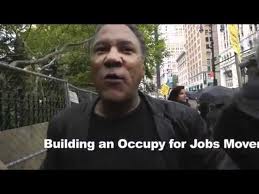A
few weeks ago, a Labour MP in Britain, Paul Flynn, expressed displeasure
with his country’s ambassador to Israel. “I do not normally fall for
conspiracy theories,” he said, “but the ambassador has proclaimed
himself to be a Zionist.” What Britain needs in Israel, according to
Flynn, is “someone with roots in the U.K.” who “can’t be accused of
having Jewish loyalty.”
Britain’s ambassador to Israel, as you may have surmised, is a Jew,
the first to serve in that capacity. He previously served in Pakistan
and Iran (not Jewish states). As for Matthew Gould’s “roots in the
U.K.,” they may not be as deep as Flynn’s, but they are
semi-respectable: On one side, his great-grandparents were immigrants,
and on the other, his grandparents. Speaking of respectability, Gould is
a graduate of St. Paul’s School and Peterhouse, Cambridge. Not bad for a
Semitic upstart.
In his widely publicized remarks, Flynn worried about “neocons and
warmongers,” now itching to invade Iran. “Warmongers” is a word we can
easily understand. But what about two other words Flynn used, “neocons”
and “Zionist”? These are very slippery terms. If you want to paralyze
someone who denounces neocons, say, “What’s a neocon?” If you want to
paralyze someone who denounces Zionists, or even refers to them, say,
“What’s a Zionist?” People use these words cavalierly and ignorantly.
And none too nicely, either.
We will concentrate on the older of the words, “Zionist.” Though it may
be older than “neocon,” it is much, much newer than “Zion.” We first
encounter “Zion” in II Samuel, Chapter 5: “David took the strong hold of
Zion: the same is the city of David.” I am quoting King James’s
translators. In Psalm 48, we have one of the loveliest lines in the
entire Bible: “Beautiful for situation, the joy of the whole earth, is
mount Zion.” Centuries later came a hymn that begins, “Glorious things
of thee are spoken, Zion, city of our God!” Those words were written by
the author of “Amazing Grace,” John Newton.
“Zion” may refer to a hill in Jerusalem, or a section of Jerusalem, or
Jerusalem itself, or all Israel. Or to the kingdom of God, period. It
also may refer to the Jewish people or to all mankind. People in
Illinois may know Zion as a city on the Wisconsin border.
“Zionism” arose in the late 19th century, and its believers and
supporters were “Zionists.” This was the movement to establish a Jewish
state in ancient Israel — to “reestablish” that state, if you like.
European Jews such as Theodor Herzl thought, or feared, that
assimilation was a lost cause. The host countries would never allow it.
The best answer was a return to Zion, to Israel. Other Jews held this
return to be desirable in itself, regardless of whether assimilation in
the broader world was possible.
Herzl wrote his pamphlet The Jewish State in 1896. The next
year, he organized the first Zionist Congress, in Basel. Many Jews were
Zionists, many were not. Those who were not, were free to stay where
they were (as were those Jews who supported Zionism but did not wish to
emigrate themselves). The ancient language, Hebrew, was revived. The
movement gathered pace. After the Holocaust, and a war of independence,
the Jews had their state. Zionism, i.e., Jewish nationalism, was
fulfilled.
But the term hung on, particularly in the mouths of Israel’s enemies.
Indeed, many Arabs would not, and will not, say “Israel.” They say
“Zionist entity” or “Zionist presence.” To say “Israel,” apparently,
would acknowledge statehood, which is unacknowledgeable, to some. The
late Yasser Arafat was a frequent user of “Zionist aggressor,” “Zionist
conquest,” and similar phrases.
One goal of Israel’s enemies was to stigmatize “Zionism,” and they had
their greatest success in November 1975, when the United Nations passed
its infamous Resolution 3379: Zionism equals racism. “Racism” was the
severest term of the age, and it may well be that today, too. Vanessa
Redgrave, a great supporter of Arafat and his PLO, said, “Zionism is a
brutal, racist ideology.” Other peoples could have their national
expression, but not the Jews. Resolution 3379 was revoked in 1991,
thanks chiefly to the work of the Bush 41 administration, and in
particular to the work of one State Department official: John Bolton.
Over the years, people have denounced Zionism while proclaiming their
great love of Jews. They’re not anti-Jewish, you see, but merely
anti-Zionist. They could just as well say “anti-Israel,” but “Zionist”
is somehow the word of choice.
Accepting an Academy Award in 1978, Redgrave congratulated her
colleagues on standing up to “Zionist hoodlums,” such as those picketing
outside. Later in her remarks, she said, “I pledge to you that I will
continue to fight against anti-Semitism and fascism.” In 1980, Jesse
Jackson called Zionism “a kind of poisonous weed that is choking
Judaism.” He was following the pattern of “Judaism good, Zionism bad.”
In 1992, he seemed to have a change of heart, hailing Zionism as a
“liberation movement.”
But old habits die hard, and Jackson is still liable to use
“Zionism” or “Zionist” as a term of abuse. In October 2008, Amir Taheri,
an exile journalist from Iran, recorded what Jackson said at a
conference in France. An Obama administration was coming, he said, and
this administration would diminish the “Zionists who have controlled
American policy for decades.” Whom did he mean, exactly? What do people
ever mean when they say “Zionists”?
Louis Farrakhan talks about Zionists almost as much as Arafat did. An
Associated Press report in 1984 said, “Farrakhan, who has been quoted as
calling Judaism a ‘gutter religion,’ denied that he was against Jews.
He has said that remark referred to Zionism, not Judaism.” Here is an AP
report from 1998: “Farrakhan suggested a Zionist plot was behind
President Clinton’s affair with Monica Lewinsky.” Earlier this year,
Farrakhan said that “Zionists dominate the government of the United
States of America and her banking system.” He added, “Some of you think
that I’m just somebody who’s got something out for the Jewish people.
You’re stupid. Do you think I would waste my time if I did not think it
was important for you to know Satan? My job is to pull the cover off of
Satan so that he will never deceive you and the people of the world
again.”
In Israel itself, the word “Zionist” is in bad odor, certainly on the
left. Few academics, artists, and cool teens would want to be known as
Zionists. This started “just after the 1967 war,” says Zev Chafets, the
veteran American-Israeli writer. “Zionist” came to mean superpatriot,
flag-waver, jingo. The worldwide Left associates Zionism with
colonialism, imperialism, and, of course, racism, and the Israeli Left
does the same.
More than a few Israelis refer to themselves as “post-Zionists,” which
may mean any number of things. For instance, it may mean that they
reject the old Zionist vision and instead welcome a “binational state,”
including the West Bank and Gaza and everyone in them. Jewish
particularism is anathema to them. When they think “Zionist,” they are
apt to think “settler,” and a settler, in their minds, is no good. Of
course, not so long ago, just about every Israeli was a settler, and a
Zionist, to boot.
There are still people who embrace the Z-word, no matter the opprobrium
that comes with it. Paul Flynn, the British MP, said that Ambassador
Gould “has proclaimed himself to be a Zionist.” That is true. Gould has
also said, “I thought long and hard about applying for the position” of
ambassador to Israel. “I thought it might just be all too difficult. But
then I thought to myself, ‘Why should Jews rule themselves out of
important positions?’” Gould has emphasized he is “the British
ambassador to Israel, not the Jewish one.”
Ten years ago, Gil Troy, a history professor at McGill University,
wrote a book with a totally unabashed title: “Why I Am a Zionist:
Israel, Jewish Identity and the Challenges of Today.” There are also
many millions of Americans who support Israel and are known as
“Christian Zionists.” Their critics utter this term with disdain or fear
or both. I suspect that these Christians themselves have no problem
with it.
To me, a Zionist has always been a person who supports the idea of a
Jewish homeland, or state, in the Middle East. In ancient Israel.
Therefore, being a Zionist is essentially the same as supporting the
right of Israel to exist. When Farrakhan says that the U.S. government,
the banks, and the media are “dominated by Zionists,” I’m apt to say,
“Sure: Most Americans support Israel, both as idea and as reality.” But I
am being too clever, no doubt — because when people say “Zionist,” they
really mean . . .
Well, what do they mean? One clue comes from John J. Mearsheimer, the University of Chicago professor who, with Stephen M. Walt, wrote The Israel Lobby and U.S. Foreign Policy,
a notorious book published in 2007. Mearsheimer has just written a
blurb for a book by Gilad Atzmon, an ex-Israeli who hates Israel and
hates himself, for that matter. He has described himself as a “proud
self-hating Jew.” In his blurb, Mearsheimer writes, “Panicked Jewish
leaders, [Atzmon] argues, have turned to Zionism (blind loyalty to
Israel) and scaremongering (the threat of another Holocaust) to keep the
tribe united and distinct from the surrounding goyim.”
So, there we have a definition of Zionism, from a professor of
political science at one of our most distinguished universities: “blind
loyalty to Israel.” There is an old joke, told by Jews, that goes,
“What’s the definition of an anti-Semite? One who hates Jews more than
is absolutely necessary.” Is that what a Zionist is — someone who
supports Israel more than is absolutely necessary? Someone who is too
enthusiastic or unyielding in his support?
In my observation, people say “Zionist” when they don’t want to say
“Jew” or “Israeli.” As Gil Troy wrote last year, “intellectuals have
camouflaged modern anti-Semitism as anti-Zionism.” There are certainly
people who are anti-Zionist or anti-Israel — is there a difference? —
without being anti-Jewish. Some of them are Jews. But, as Paul Johnson,
the historian, once said to me in an interview, “Scratch the fellow who
is anti-Israel, and you won’t have to dig very far before you find the
anti-Semite within.” Another historian, Bernard Lewis, says that talk of
Zionism “sometimes provides a useful cover”: a cover to those who
harbor the old, enduring hatred.
As you go about life, you may encounter someone who says “Zionism” or
“Zionist,” with an edge in his voice. Ask him what he means. The answer,
or non-answer, you get is likely to be revealing.
— Jay Nordlinger is a senior editor of National Review. This article originally appeared in the December 31, 2011, issue of National Review.





